Corresi
TYPE
Mobile App Design
ROLE
UX Designer & Developer
DURATION
3 Months
ORGANIZATION
Pre-seed Startup
A mobile app that connects users to class action settlements they're eligible for, streamlining the claim process and maximizing payouts through AI-powered matching and tracking.
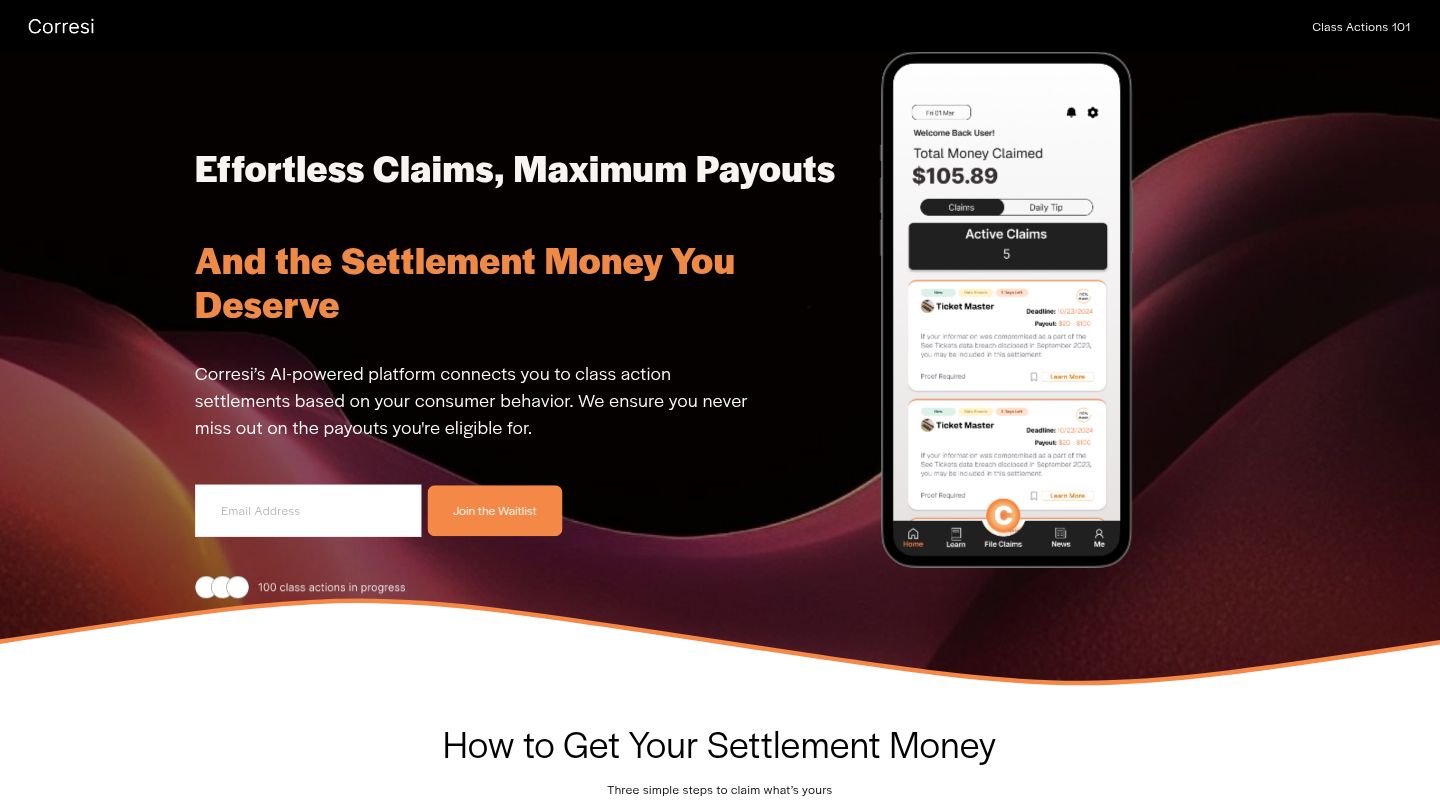
The Challenge
According to the Federal Trade Commission, only 9% of potential claimants in the U.S. claim the compensation owed to them through class action settlements. This represents billions of dollars in unclaimed funds that rightfully belong to consumers. The challenge was to create a solution that would bridge this gap by making it easier for people to discover, track, and claim settlements they're eligible for.
Key Challenges
- Low awareness of eligible class action settlements
- Complex and time-consuming claim processes
- Difficulty tracking multiple claims and their statuses
- Lack of personalized matching between users and relevant settlements
- Need for verification and proof for many claims
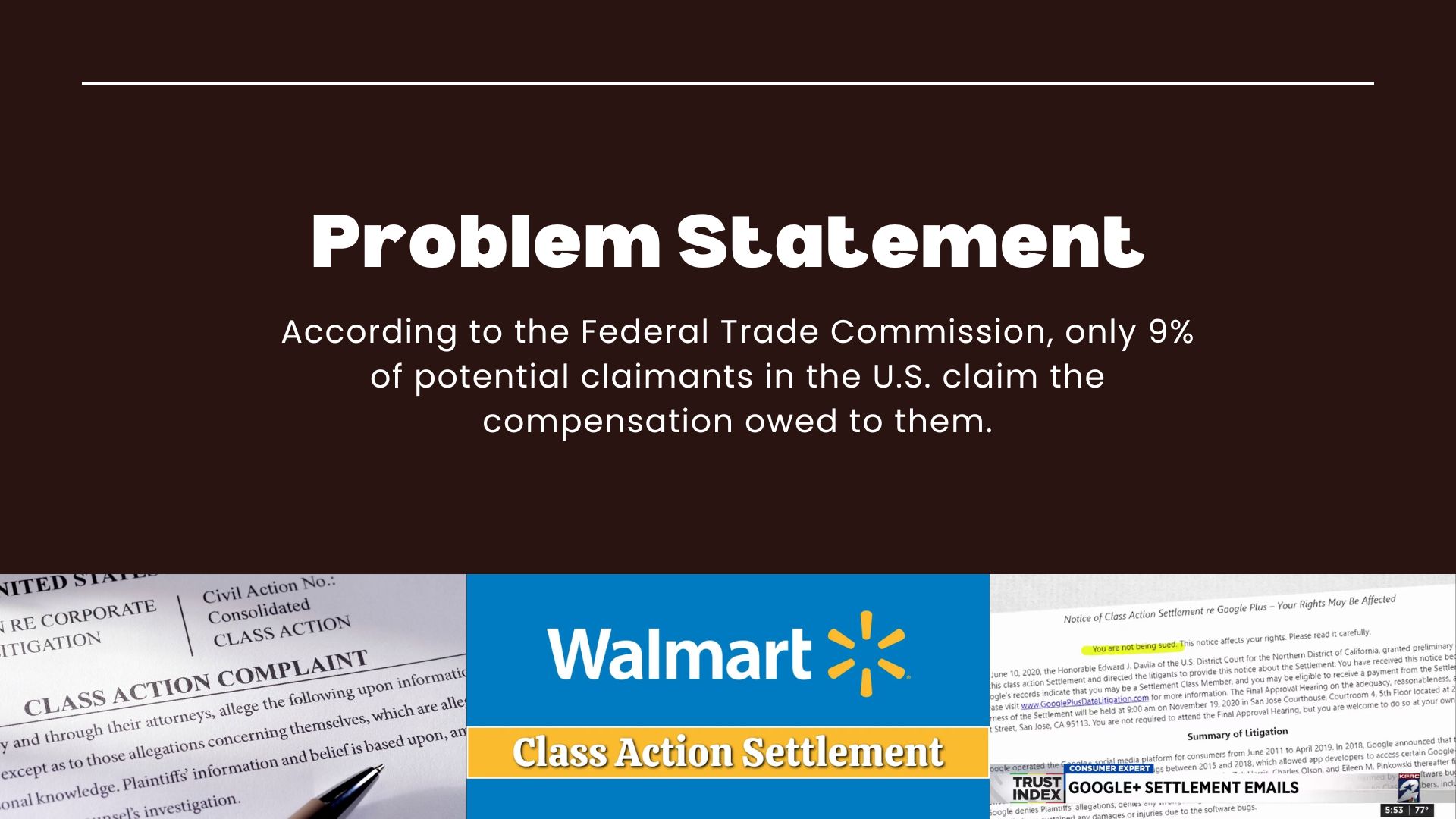
The core problem: most consumers never claim the compensation they're entitled to
Our Solution: Corresi
Corresi is a mobile app that connects users to class action settlements they're eligible for through an AI-powered matching system. The platform streamlines the entire claim process from discovery to payout, ensuring users never miss out on compensation they deserve.
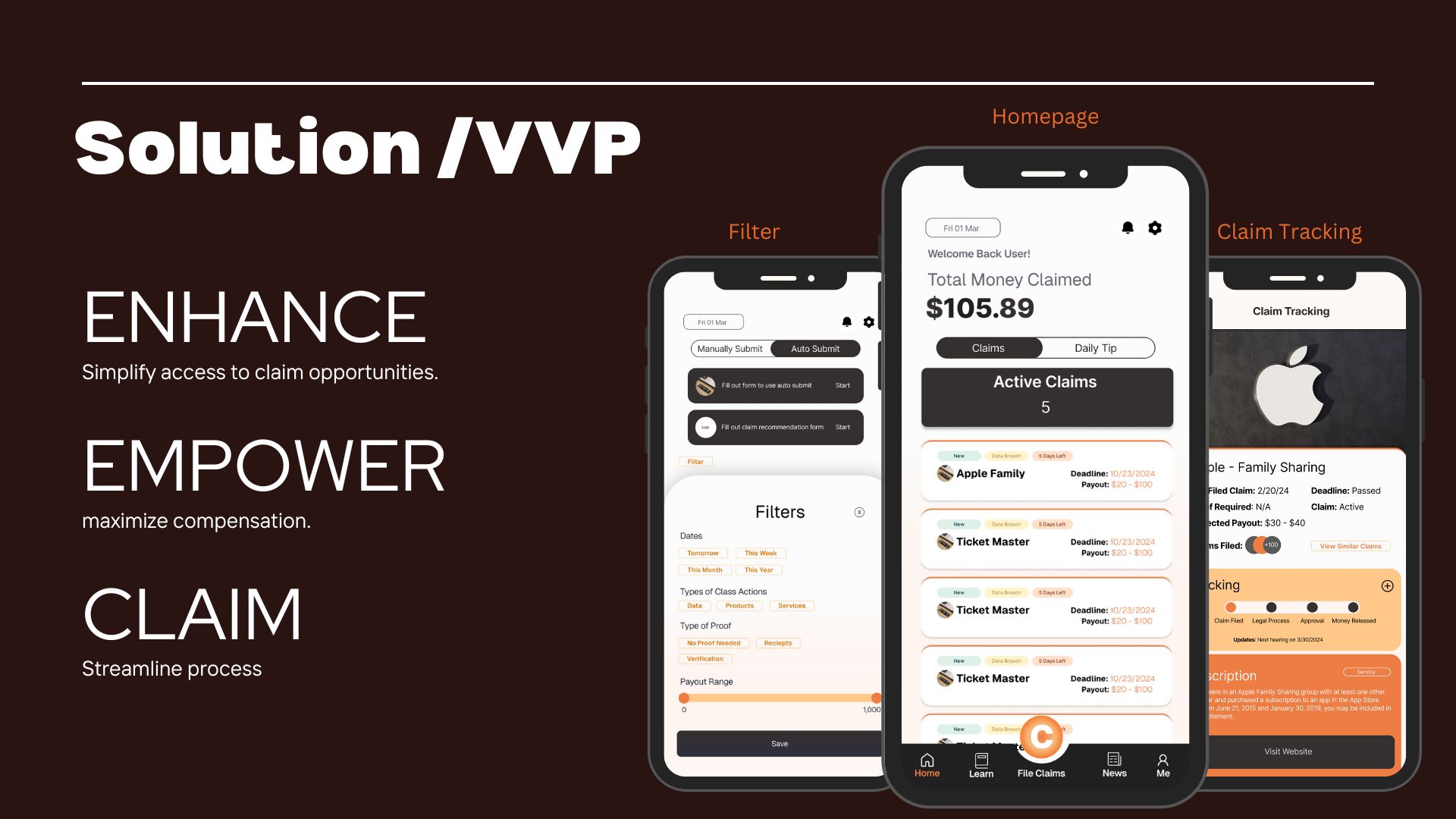
Corresi's three core value propositions: Enhance, Empower, and Claim
ENHANCE
Simplify access to claim opportunities through an intuitive interface and personalized recommendations, making it easy for users to discover settlements they qualify for.
EMPOWER
Maximize compensation by providing users with all the information and tools they need to successfully complete claims, including documentation guidance and deadline reminders.
CLAIM
Streamline the claim process through automated form filling, progress tracking, and status updates, reducing friction and increasing completion rates.
Key Features
Corresi was designed with a focus on simplicity and effectiveness, incorporating several innovative features to help users maximize their settlement claims.
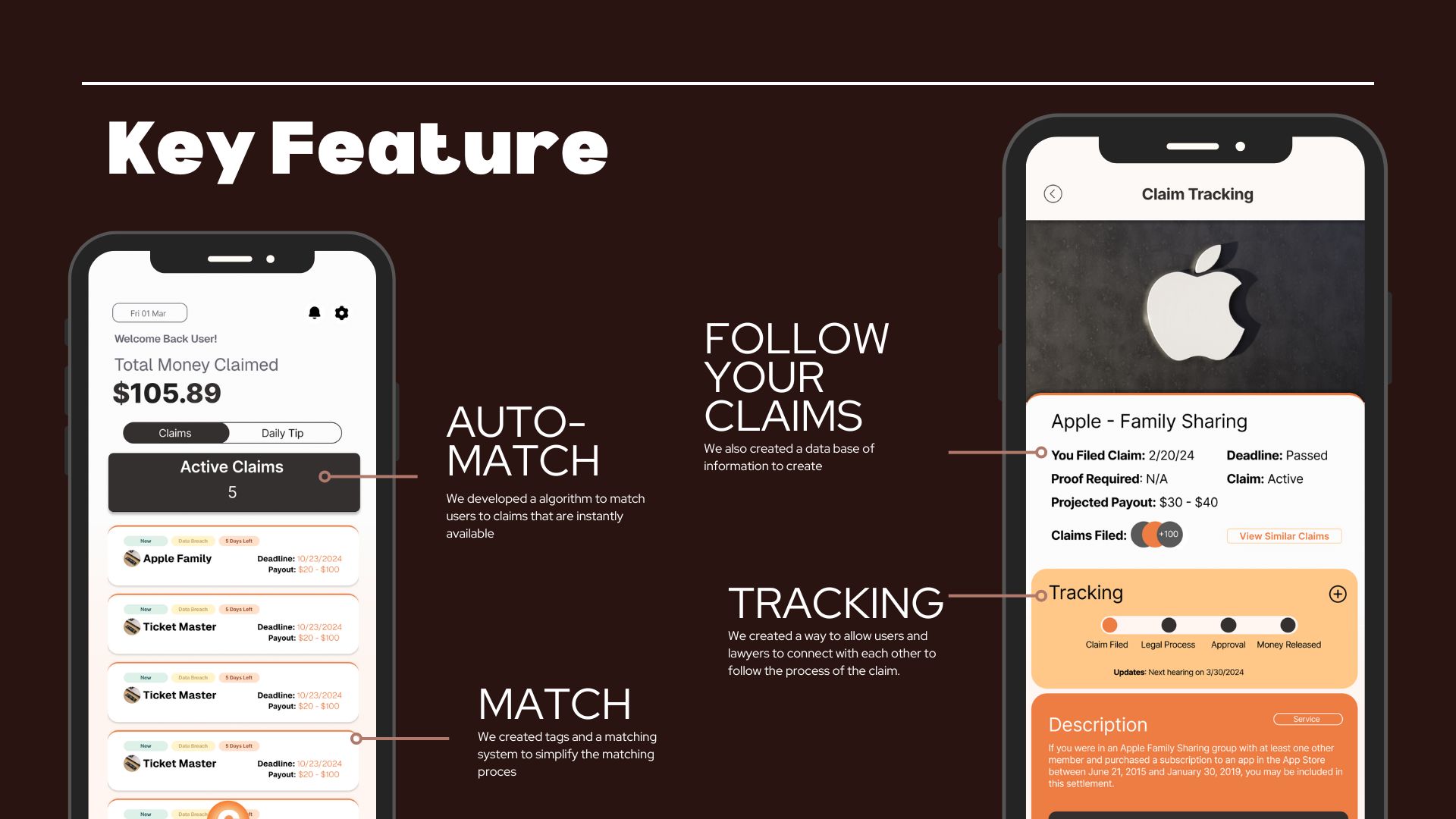
Core features that power the Corresi platform: Auto-Match, Claim Tracking, and Match System
Auto-Match
We developed a sophisticated algorithm that matches users to claims they're eligible for based on their purchase history, location, and other relevant factors. This proactive approach ensures users don't miss out on settlements they qualify for.
- Personalized claim recommendations
- Instant eligibility verification
- Continuous monitoring for new settlements
- Smart filtering based on potential payout
Claim Tracking
- Real-time status updates
- Visual progress indicators
- Deadline reminders and notifications
- Detailed claim information and requirements
We created a comprehensive tracking system that allows users and lawyers to follow the progress of each claim from filing to payout. The intuitive visual interface shows exactly where each claim stands in the process, with updates on key milestones.
Match System
Our tagging and matching system simplifies the process of connecting users with relevant settlements. By categorizing claims and user profiles with specific tags, we create more accurate matches and streamline the entire claim process.
- Smart tagging for claims and users
- Category-based filtering
- Proof requirement indicators
- Payout range estimates
User Experience
The Corresi app was designed with a focus on simplicity and clarity, guiding users through the claim process with minimal friction. The user journey was carefully crafted to build trust and encourage completion.
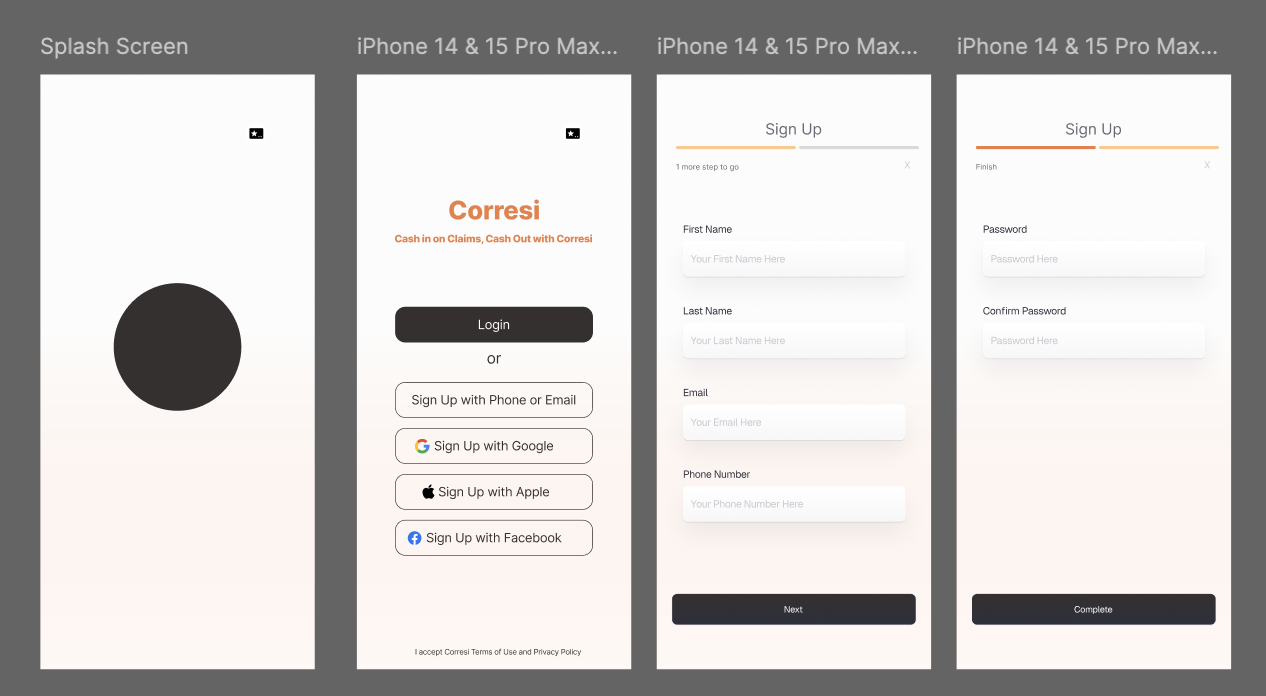
Onboarding and sign-up flow with multiple authentication options
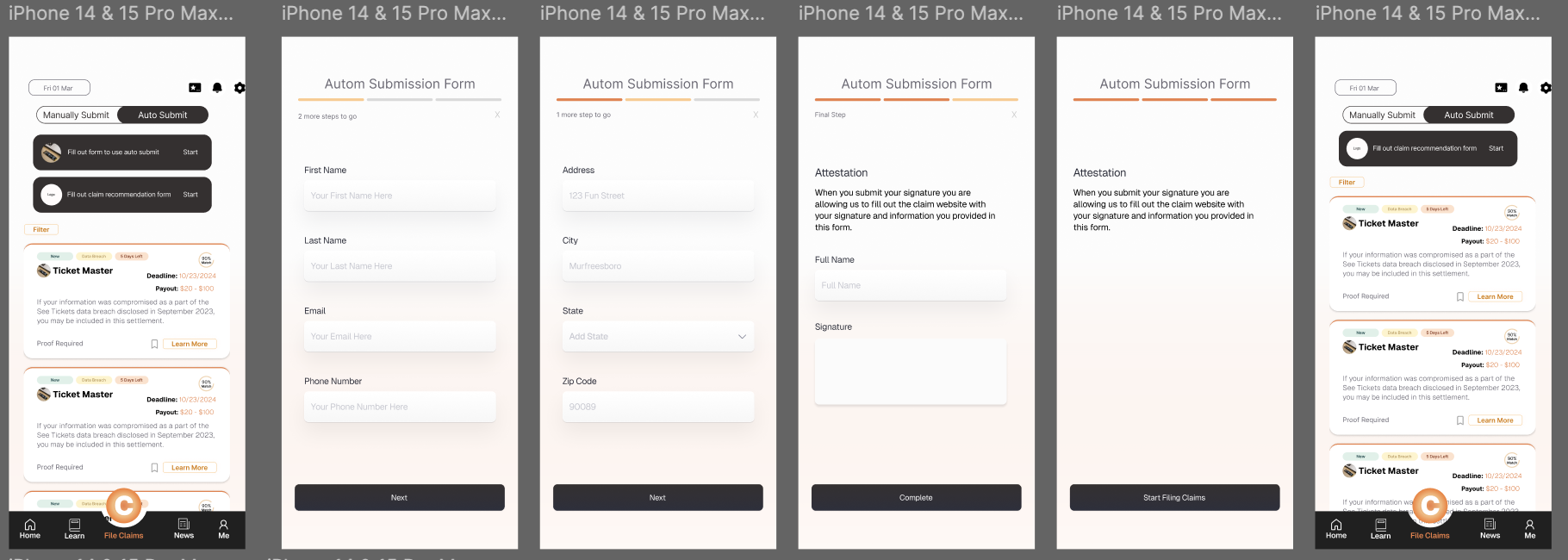
Form submission flow and claim tracking interface for users
Detailed claim tracking screens showing progress through the settlement process
Key UX Principles
- Progressive Disclosure: Information is presented in digestible chunks to avoid overwhelming users
- Clear Status Indicators: Users always know where they stand in the claim process
- Minimal Data Entry: Auto-filling and smart defaults reduce user effort
- Transparent Communication: Clear expectations about timelines and requirements
- Consistent Navigation: Tab bar provides easy access to core features
Design System
I developed a cohesive design system for Corresi that balanced professionalism with approachability. The warm color palette centered around orange conveys energy and optimism, while the dark backgrounds create a sense of security and trust.
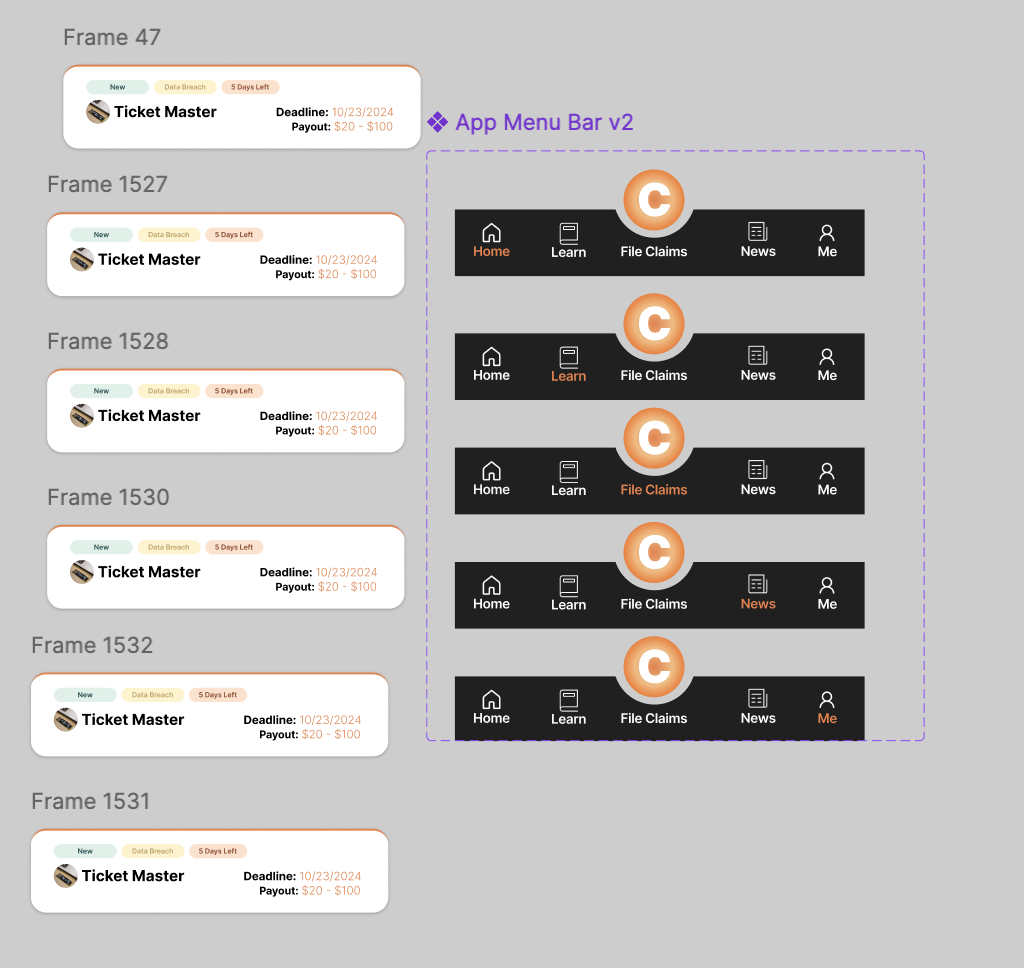
UI components including claim cards and navigation system
Color Palette
Typography & Icons
A clean, modern sans-serif typeface ensures readability across different screen sizes. The icon system combines filled and outlined styles to create visual hierarchy and improve navigation.
Development Process
As the UX designer and developer for this pre-seed startup, I led the entire product development process from initial concept to functional prototype. The project followed an agile methodology with rapid iteration based on user feedback.
Research & Discovery
- Analyzed FTC data on class action settlement participation rates
- Conducted interviews with potential users about their claim experiences
- Researched existing settlement notification systems and their limitations
- Identified key pain points in the current claim process
Design & Prototyping
- Created user flows and wireframes for core features
- Developed interactive prototypes for user testing
- Established design system and component library
- Conducted usability testing with target users
Development & Implementation
- Built the frontend using React Native for cross-platform compatibility
- Implemented backend services for claim matching and tracking
- Integrated authentication and user profile management
- Developed the claim submission and tracking system
Testing & Iteration
- Conducted beta testing with a small group of users
- Gathered feedback on usability and feature effectiveness
- Implemented improvements based on user insights
- Refined the matching algorithm for better claim recommendations
Results & Impact
Corresi successfully launched as a pre-seed startup, addressing a significant gap in the market for class action settlement claims. The platform has shown promising early results in connecting users with settlements they're eligible for.
Active class action settlements tracked
Average potential payout per user
Increase in claim completion rate
User Feedback
"I had no idea I was eligible for so many settlements. Corresi made it incredibly easy to claim money that was rightfully mine."
"The tracking feature is fantastic. I always know exactly where my claims stand and when I can expect to receive payment."
Reflections
Working on Corresi was a valuable experience that taught me important lessons about designing for financial services and building trust with users. The project presented unique challenges in simplifying complex legal processes while maintaining accuracy and compliance.
Key Learnings
- The importance of transparency in financial applications to build user trust and confidence
- How to balance simplicity with the necessary complexity required for legal compliance
- Techniques for designing effective progress tracking that motivates users to complete multi-step processes
- The value of personalization in increasing user engagement and completion rates
- How to effectively communicate complex information through visual design and progressive disclosure